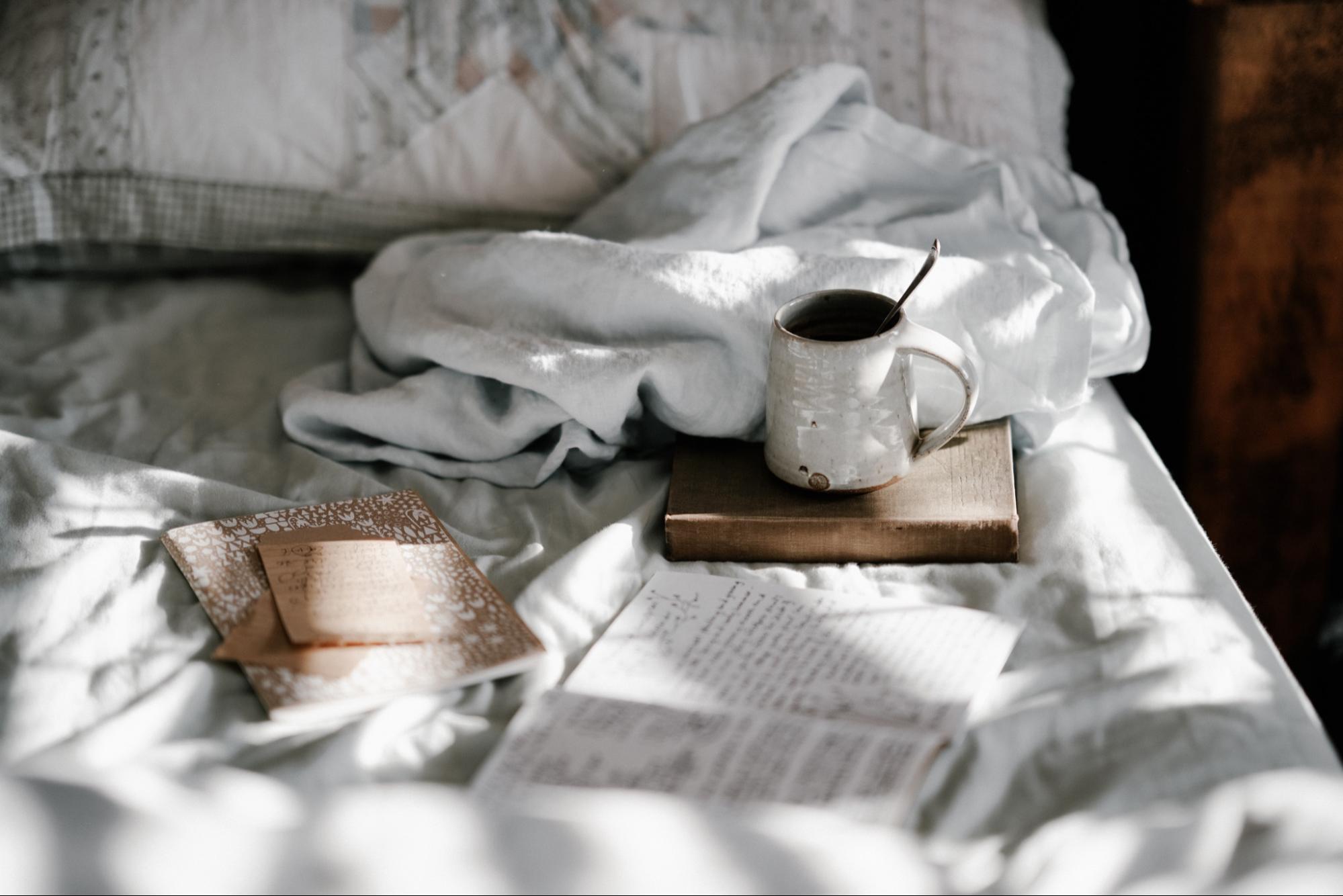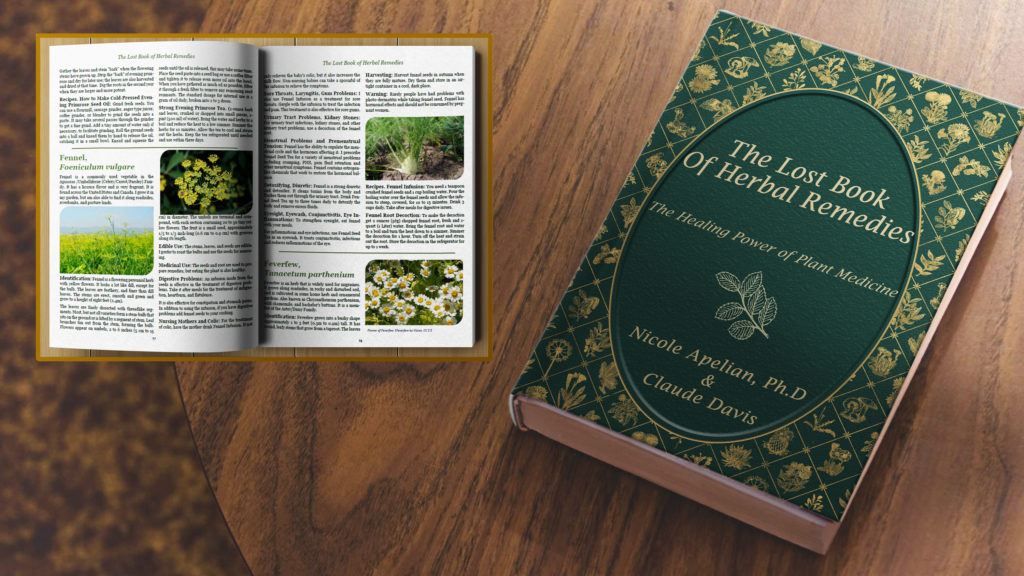Soothing Medicinal Herbs for Deep Rest
For anyone who has ever suffered from insomnia, you know that lack of quality sleep affects every area of your life. Clarity, patience, energy level, and health suffers if we do not receive at least seven hours of sound sleep each night. And it’s not only the number of hours you sleep, but whether or not you experienced deep, restorative rest. Insomnia and fitful sleep is often linked to stress, anxiety, worry, and a variety of health issues. If you are ready to experience sound, rejuvenating sleep, medicinal herbs offer a safe and effective alternative to pharmaceutical drugs. Here are six outstanding herbs that will help to promote restful sleep so you can greet your day refreshed and energetic.
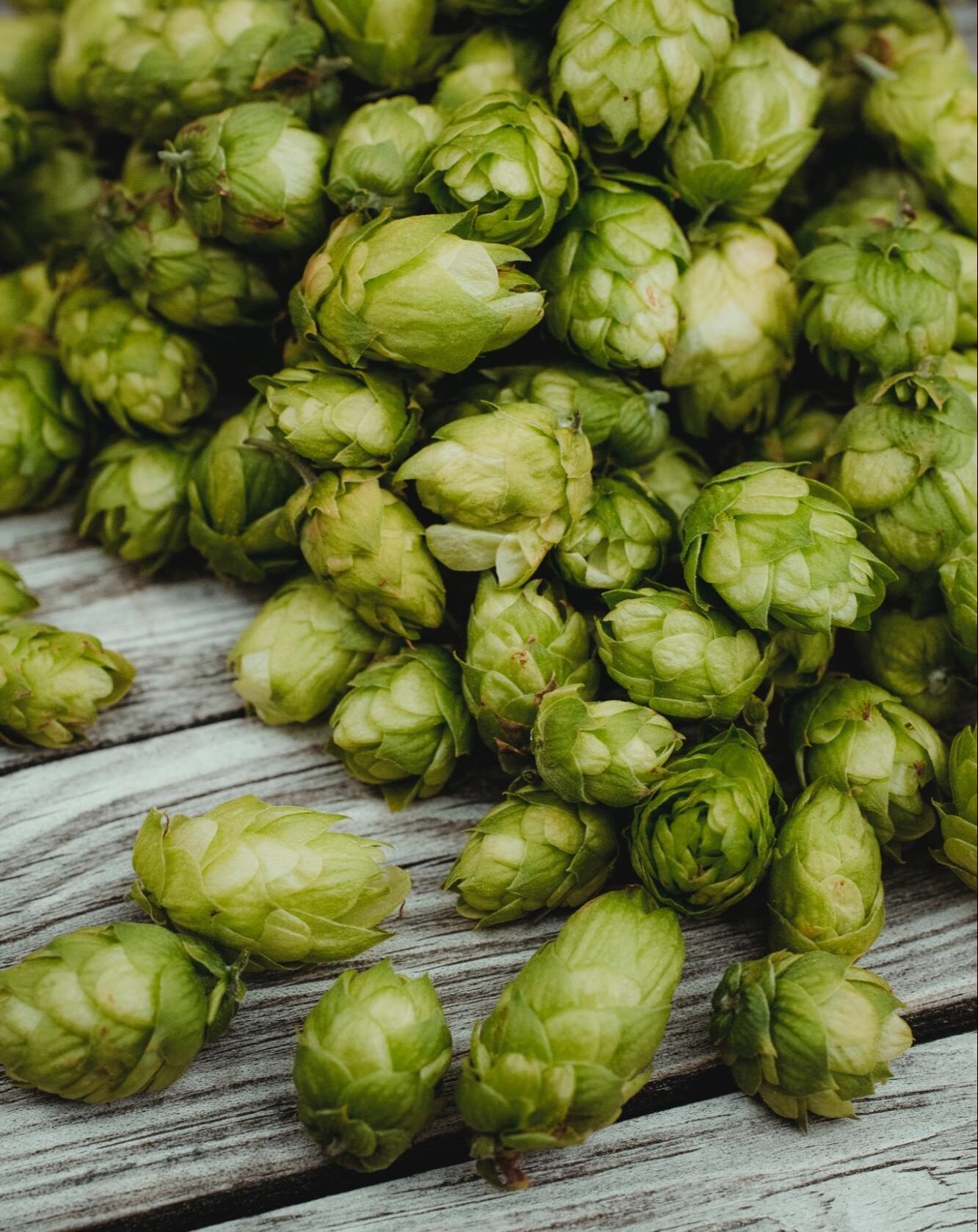
My Top 6 Herbs for Insomnia
Hops (Humulus lupulus)
Often used for brewing beer, the female flowers of the hops plant also make a soothing (if somewhat bitter) tea. The young leaves and shoots can be eaten raw or cooked. Fresh hops is a potent sedative and is an excellent medicinal herb for insomnia and anxiety. It also reduces body temperature, which helps you to enter into a relaxed state for sleep and increase sleep time. Take with valerian at bedtime for deep, peaceful sleep. In fact, research has shown that hops and valerian are an outstanding herbal combination for treating insomnia.
Valerian (Valeriana officinalis)
Valerian supports sound, restorative sleep in a number of ways. Studies have shown that it helps you to fall asleep faster, calms restless sleep, and increases the length of sleep. A double-blind study conducted in Sweden by the Foellinge Health Center found that, “forty-four percent [of the participants] reported perfect sleep and 89% reported improved sleep from the preparation” without any side effects. Valerian also assists in improving sleep issues connected with menopause. It soothes stress and anxiety as well, furthering its sleep-promoting benefits.
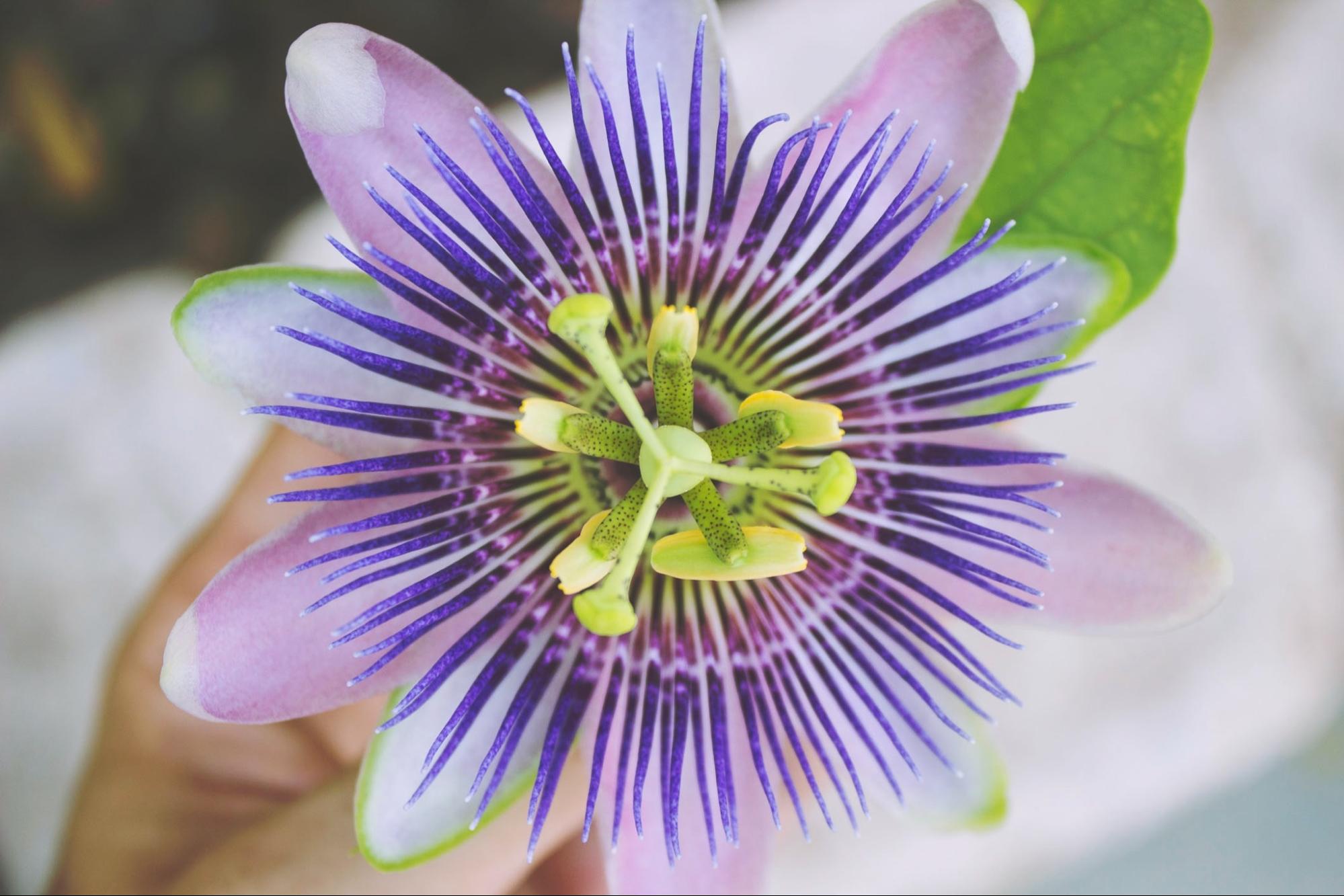
Passion Flower (Passiflora incarnata)
Grown by the Incas, Aztecs, and other native people throughout the Americas, passion flower is a strikingly beautiful botanical with a long history of use. It is a traditional herbal sedative and anxiolytic that helps to calm the body and mind. In one double-blind study, participants who drank passion flower tea for seven days experienced significant improvement in sleep quality. Passion flower also improves ADHD symptoms, soothes anxiety, and reduces the effects of menopause — including depression and hot flashes.

Chamomile (Matricaria chamomilla)
I use both the flowers and leaves of the chamomile plant medicinally, but the flowers make the best tea with an apple-like flavor. Chamomile acts as a sedative and is very soothing. It not only helps to calm the nervous system, but also soothes muscle aches and pains that may disrupt sound sleep. Enjoy one cup of tea before bedtime to encourage relaxation and deep rest. If you find more is needed, use a tincture instead.
Motherwort (Leonurus cardiaca)
Part of the mint family that is often found along the edges of woodlands, motherwort grows throughout North America and Europe. The plant is exceptionally hearty and many consider it invasive. The flowers are edible and frequently used for tea, beer, and flavoring soups. The leaves are extremely bitter and rarely eaten. When used medicinally, the plant is helpful for addressing sleep problems by calming the nervous system. Motherwort soothes stress, anxiety, worry, and panic attacks. It also uplifts the mood and lessens depression.
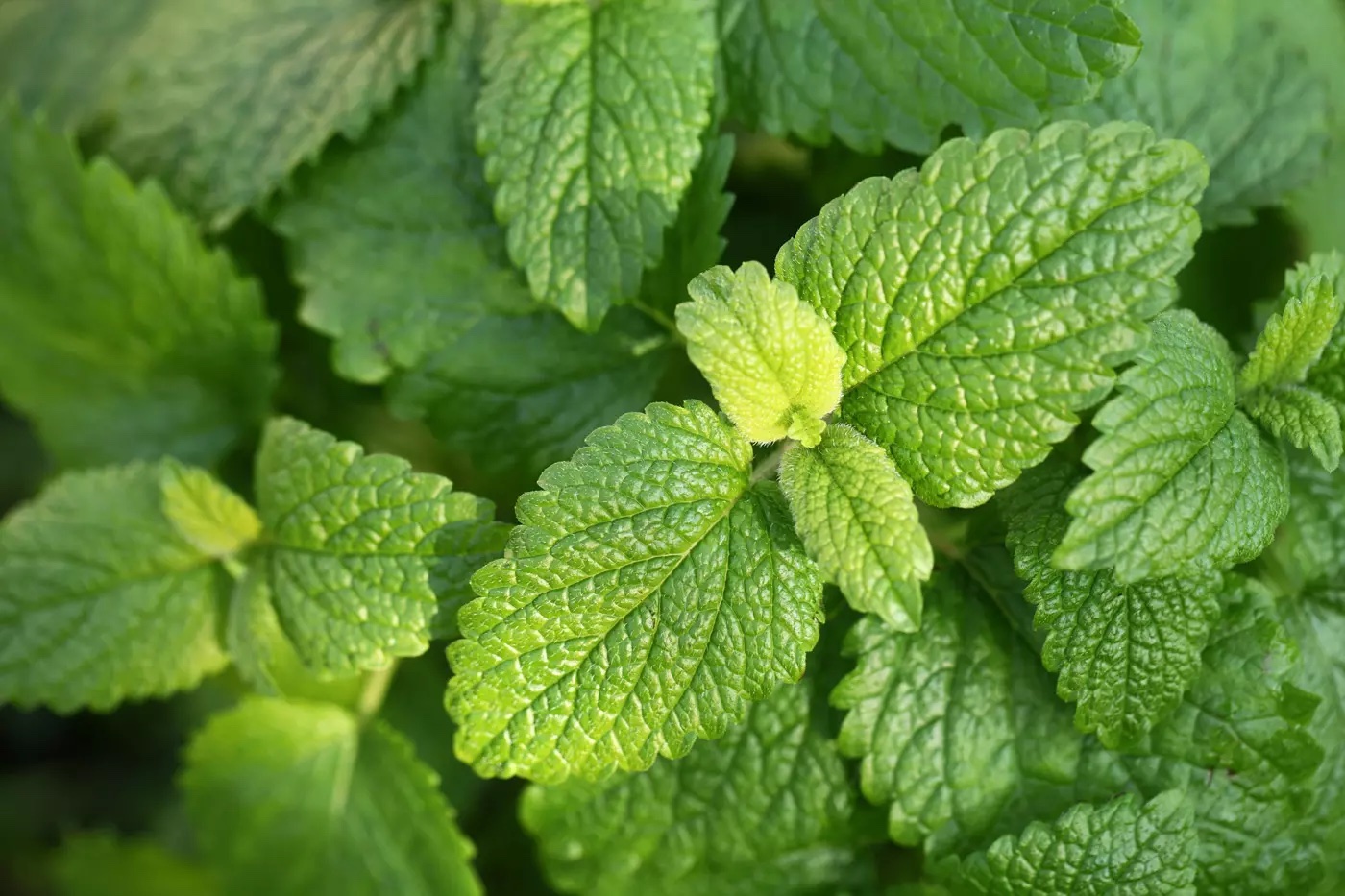
Lemon Balm (Melissa officinalis)
As with the motherwort plant, lemon balm is part of the Lamiaceae (mint) family. It is similar in appearance to mint or catnip, but distinguished by its lovely lemony scent. The leaves are edible and are frequently brewed as a delicious tea or used as a flavoring for baked goods. Its flavor is enhanced by the sweetness of raw honey. Lemon balm is an excellent medicinal herb for reducing anxiety and insomnia, especially when used in a concentrated tincture form, like the one found in my Apothecary. It also improves mood and cognitive performance in both children and adults without negative effects. If you find you are experiencing sleep disorders, especially around menopause, try a combination of lemon balm and valerian for relief. Lemon balm can help to reduce anxious thoughts, so it is an effective herbal remedy for ADHD and mild depression. Since it helps to encourage sleep by calming the mind without drowsiness, it’s a great choice for day use as well.
Other Herbs You May Like
Reishi (Ganoderma lucidum)
Known as the “mushroom of immortality”, reishi is a powerful medicinal mushroom that is identified by its fan-shaped cap that looks as though it was painted with a coat of clear varnish. When taken regularly, reishi can help alleviate insomnia and other sleep disorders. It can also ease the fatigue and anxiety that often accompanies poor sleep. In short, reishi mushroom promotes a sense of wellbeing and quality of life. To experience the full beneficial effects of the mushroom, it is important to only use a high-quality tincture that is made from the fruiting body and utilizes a dual-extraction method, like the reishi tincture in my Apothecary. You can learn more about these processes here.
St. John’s Wort (Hypericum perforatum)
Interestingly, St. John’s Wort is named for its uncanny ability to bloom on June 24th, Saint John the Baptist’s birthday. Both the flowers and the leaves are used for medicinal purposes, including helping to relieve insomnia. Best known for reducing depression, St. John’s wort also soothes restlessness and anxiety without adverse effects. Paired with lemon balm, St. John’s wort is an excellent remedy for SAD (Seasonal Affective Disorder) and OCD.
Infusion for Sound, Restful Sleep
Recipe: Hops and Valerian Infusion. Bring 1-quart of purified water to a boil. Add 1 heaping tablespoon of hops and 1 heaping tablespoon of chopped valerian root. Cover and turn down the heat to a low. Simmer for 5 minutes, then remove from heat. Leave covered and allow to steep for 45 minutes. Sweeten with raw honey or pure maple syrup, if desired. Drink 1 to 11/2 cups of the infusion before bedtime.
Safety
Valerian — Large doses taken repeatedly can produce heaviness, stupor, and headaches. Since valerian can become addictive, only use when needed. Avoid use during pregnancy as safety has not been established.
Passion Flower — Discontinue use if you experience nausea or vomiting and seek the help of your healthcare provider. Avoid use if pregnant or breastfeeding.
Chamomile — While it is uncommon, some people have an allergic reaction to chamomile. People with allergies to the Asteraceae family, including ragweed and chrysanthemums, should not take chamomile.
Motherwort — If pregnant, only use motherwort under the guidance of your healthcare practitioner as it can expedite labor and increase contractions. Do not use it if taking heart medications or if you have cardiovascular disease before consulting with a medical professional.
Lemon Balm — Avoid if using thyroid medication or if you have an underactive thyroid (hypothyroidism). Consult with your healthcare practitioner before use if pregnant or nursing. Possible side effects include headache, nausea, bloating, gas, indigestion, dizziness, and allergic reactions. Do not use two weeks before a scheduled surgery.
Reishi mushroom — While generally considered safe, it is possible to ingest too much. It’s best to avoid reishi mushroom if pregnant or breastfeeding as safety has not been established. Consult with your healthcare practitioner before use if you have a bleeding disorder. Since reishi is a vasodilator, do not use it before surgery.
St. John’s Wort — Do not use it if you have bipolar disorder as it increases the risk of mania. Those taking SSRI medication should avoid using St. John’s Wort. Since the herb interacts with many modern medicines, consult with your healthcare practitioner before use. It may cause sun sensitivity in fair skinned individuals. Do not use two-weeks prior to surgery.
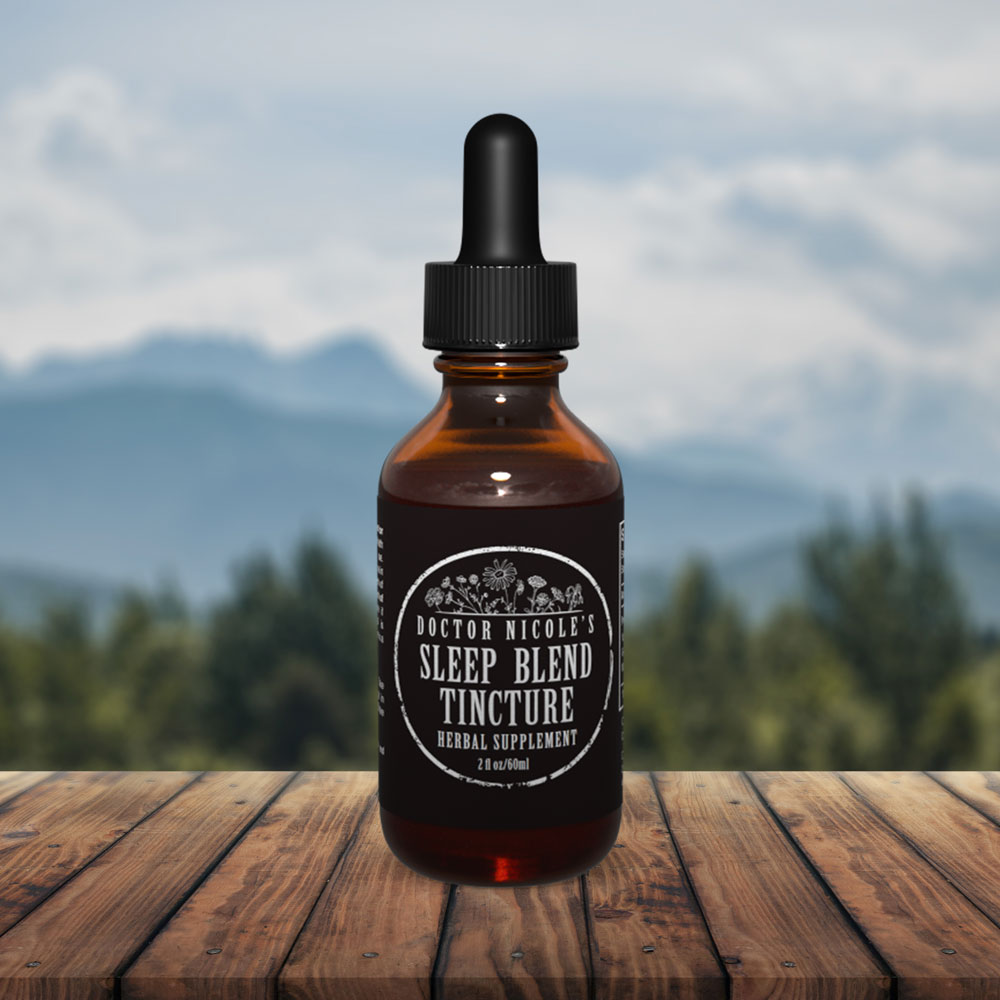
Sleep Blend Support
Valerian Root, Hops Strobile Flower, German Chamomile, and Passion Flower are combined with Magnesium Glycinate to create my Sleep Blend Support Tincture. This blend is formulated to help you fall asleep faster and stay asleep longer.
Nicole Apelian
Roll Up Your Sleeves and Do it Yourself?
Are you interested in making your own herbal remedies at home and learning about the many plants, lichens, and mushrooms you can find out your own back door? If so please pick up a copy of my book: "The Lost Book Of Herbal Remedies: The Healing Power of Plant Medicine" today!
Not in Europe or the US? Not a problem, click here to order your copy »

